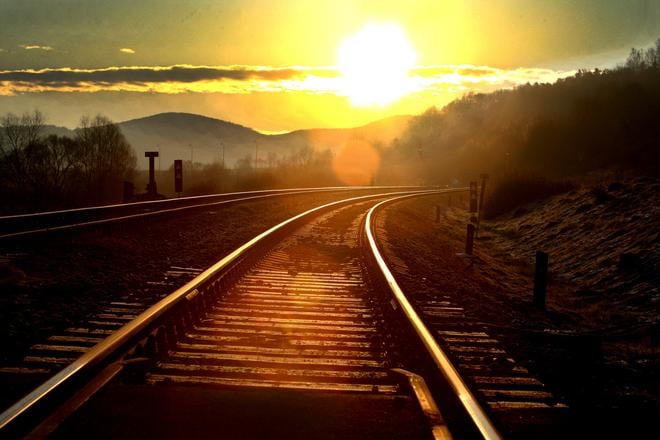The reconstruction of a 2.4-kilometre section of railway between Bratislava's Devínska Nová Ves and the Austrian border at Marchegg is facing yet more delays, according to Index magazine. Originally expected to be completed within a year of its March 2023 launch, the project was originally pushed back to April 17, 2025. That deadline has now passed with the work still unfinished.
The project, managed by state-owned Slovak Railways (ŽSR) and executed by Austrian firm Porr, includes the electrification and double-tracking of the railway line. Once completed, trains will be able to travel at 120 km/h, cutting the Bratislava–Vienna journey from 67 minutes to just 40 minutes. The line is also intended to handle more freight traffic.
Austria completed its portion of the track in 2023, after beginning work in 2018. Slovakia, however, continues to lag behind.
“Currently, work is ongoing on the bridges and on the upper and lower parts of the railway track. The majority of the work is being done on the bridges,” said ŽSR spokesperson Petra Lániková.
Floods, birds and a bunker
Several issues have contributed to the delay. The site is located in a protected natural zone with rare nesting birds, which required interruptions and coordination with nature conservation authorities to relocate wildlife.
Heavy rainfall and flooding of the Morava River last spring and autumn also disrupted work. “Floods in April submerged the site, damaging machinery. Construction on the lower parts of the bridges resumed only after three weeks, once the site dried,” Lániková said. The autumn flood reached five metres, causing another two-month delay.
An unexpected complication emerged during work on the bridge: “A World War I-era bunker was discovered, connected to the bridge pillar by a tunnel used for mining the structure,” Lániková explained. This required changes to the construction plans based on additional geotechnical surveys.
Due to these complications, the budget has increased by €400,000, bringing the total project cost to €14.5 million with VAT. The revised completion date is now set for the fourth quarter of 2025.
Railway expert Jiří Kubáček criticised the lack of early site assessment: “Saving costs on initial site surveys is a typical issue in Slovak railway projects.” He also expressed doubts about meeting the new deadline, noting the slow pace of work: “Only €3 million of the €14 million budget had been spent by the end of 2024.”



 A Slovak railway track. (source: Ján Krošlák)
A Slovak railway track. (source: Ján Krošlák)